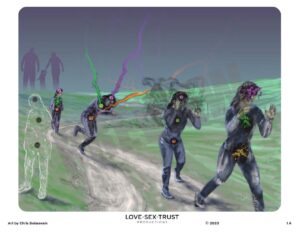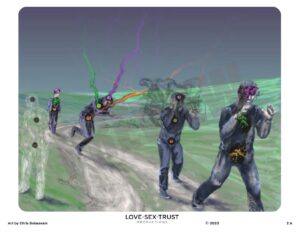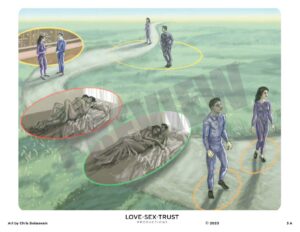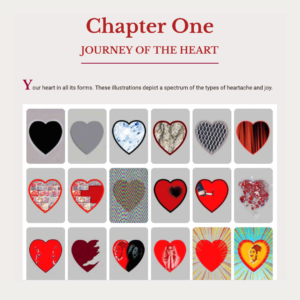Affairs, Infidelity, Betrayal: Confront and Decide
$5.99Are you trying to wrap your mind around a complex, private experience?
Highly dramatic situations tend to distract you away from the investigation of deep, core issues.
I started working as an advocate for children and working with infidelity has oddly become an extension of that. While it involves sex, at its core, it is typically linked to childhood trauma and modeling.
Affairs, Infidelity, Betrayal: Confront and Decide, is a workbook outlining the tools I use to help decode the complexities of infidelity. Whenever I start with clients on this topic, I push morality to the side, not because it’s not important, but so both people have the opportunity to equally investigate the underlying reasons, the why, for both of their positions.
Behaviors are explored through a lens of psycho-education as it applies to early childhood development, trauma and reactivity via sexual arousal cues.
Similar to the one I use when interviewing people in my practice, the book provides a decision tree to help you individually engage in a self inquiry process as you develop your hypothesis for why events happened.
Step one. Along with the JOURNAL app and Tracking Myself ebook you can see how truly invested each of you are in a self inquiry process and evaluate if your hypotheses for why events happened match. This structure helps you avoid getting distracted by the emotional deflection typically generated through your established patterns of conflict, collapse, or mutual denial.
Step two.
Depending on your independent evaluation, you can work together or alone. Tracing how your relationship got to that place is key in processing and deciding how to move forward. Concrete tools are given to evaluate if each of you are in good faith, meaning your words are aligned with actions. You are directed to specific ebook resources for next steps based on what you decide you want to do.
Regardless of your relationship outcome, learning to ask yourself and answer important questions, without a veil of denial, allows you to rework childhood wounds, deepening your maturity, benefiting yourself, relationships and future generations.
Contents
- Introduction: Am I Paying Attention?
- Affair Origins
- Confront
- Decide Why, Motives, Level 1
- Decide Why, Motives, Level 2
- Resources
Estimated read time, 30 minutes
 Journey of Pain - Woman
Journey of Pain - Woman



















